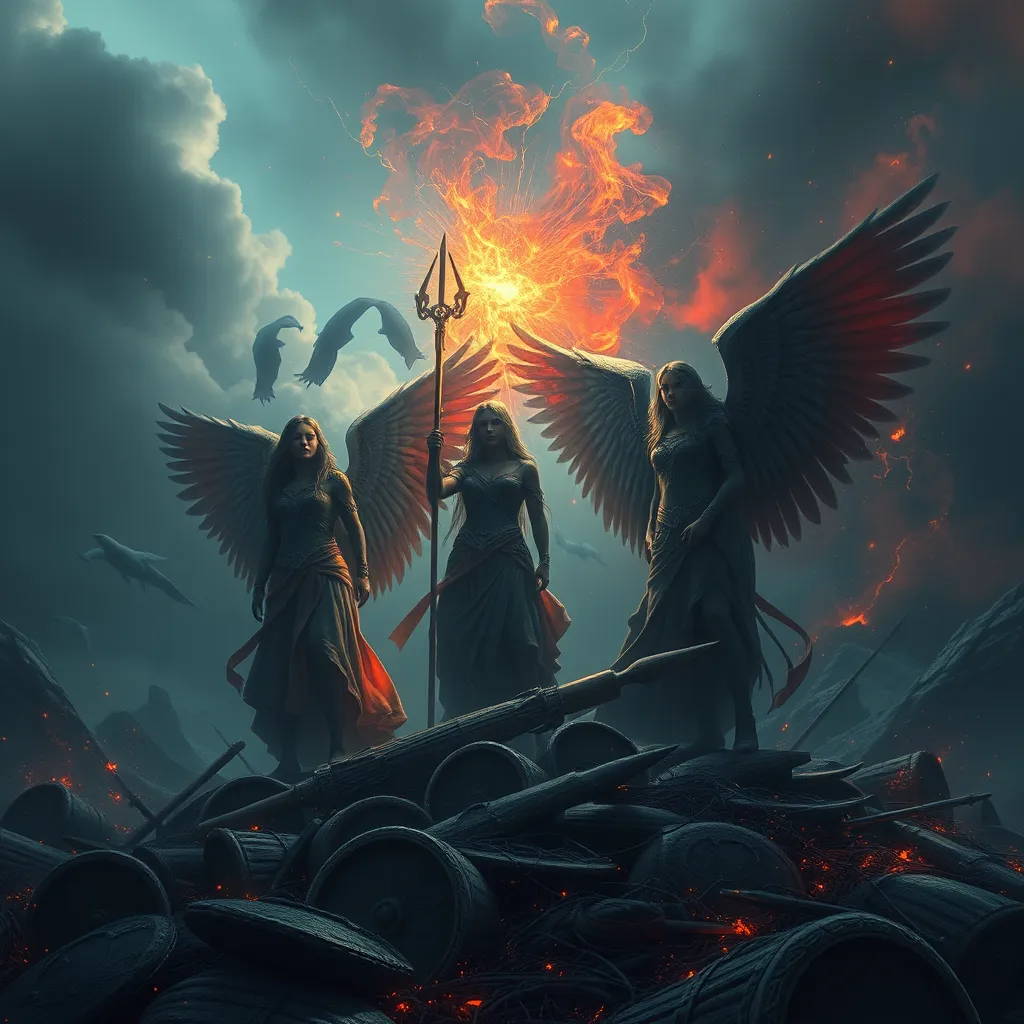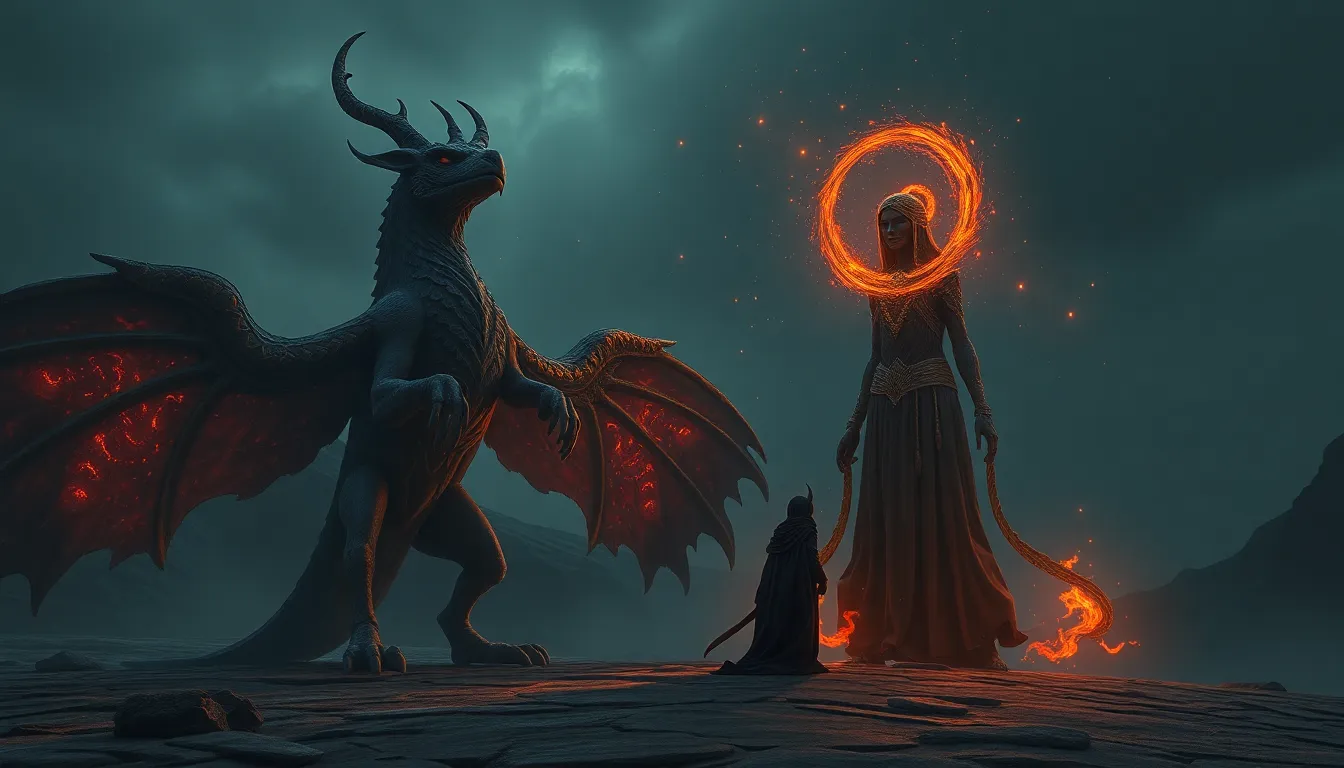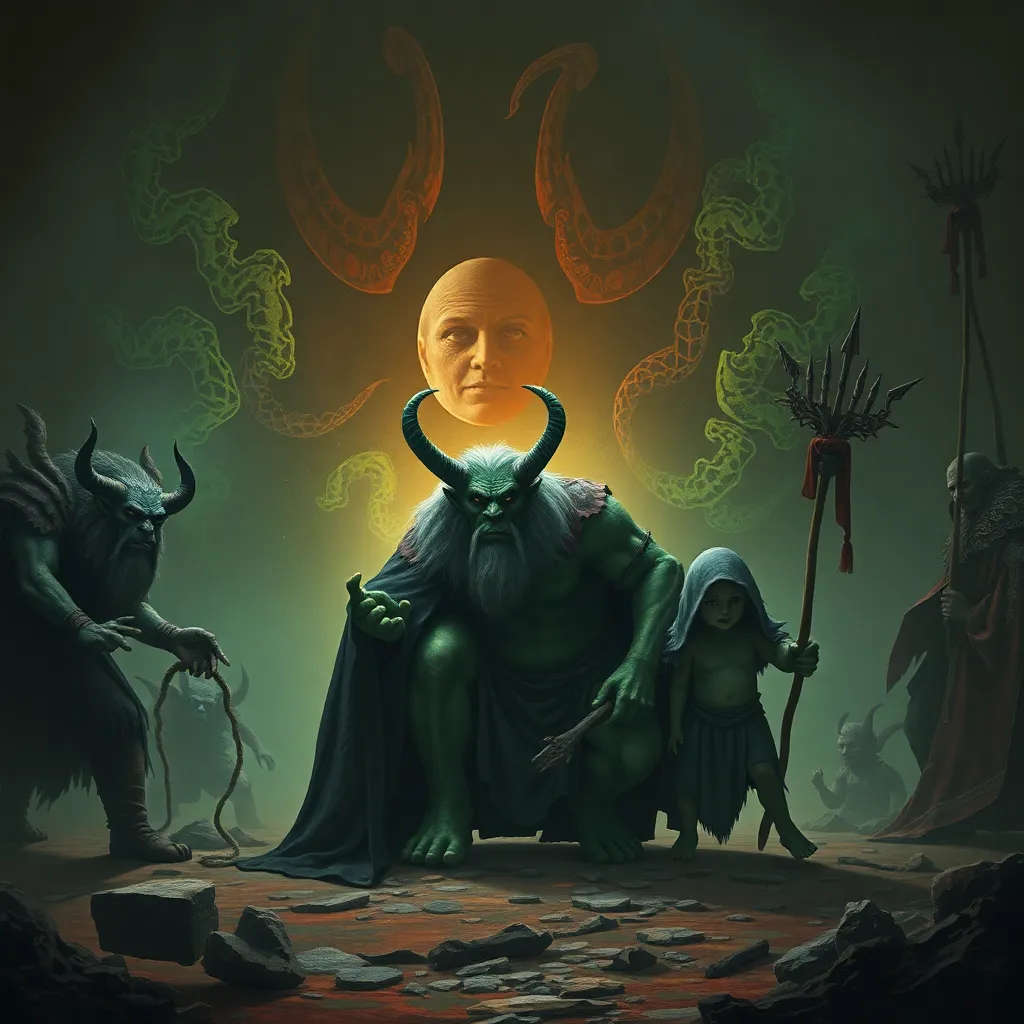The Valkyries’ Redemption: Exploring the Potential for Redemption for the Choosers of the Slain
I. Introduction
The Valkyries, a fascinating aspect of Norse mythology, are often depicted as divine shieldmaidens serving Odin, the chief of the gods. Their primary role is to choose those who may die and those who may live in battles, guiding the souls of fallen warriors to Valhalla, where they prepare for Ragnarok. This powerful and sometimes daunting responsibility raises profound questions about morality, choice, and the potential for redemption.
Redemption, a concept prevalent in many cultures and belief systems, signifies the possibility of atonement or salvation from past actions. It embodies the idea that no matter how far one strays, there exists a pathway back to grace and virtue. This article aims to explore the potential for redemption among the Valkyries, delving into their dual nature, the psychological implications of their role, and the impact of contemporary interpretations.
II. The Nature of the Valkyries
The historical and mythological origins of Valkyries trace back to the ancient Norse sagas and Eddas, where they are portrayed as both warriors and guides. Their name, derived from Old Norse, means “chooser of the slain,” highlighting their critical role in the fate of warriors. This duality presents a complex moral landscape: while they are celebrated for their bravery and strength, their choices bear significant consequences for the lives of those they select.
The moral implications of choosing who lives and who dies are profound. The Valkyries are often seen as agents of fate, caught in the intricate web of destiny woven by the Norns, the three goddesses of fate. Their decisions can be interpreted as both empowering and tragic, as they wield the power of life and death, yet must operate within the confines of a predetermined order.
III. The Concept of Redemption in Mythology
Redemption themes are prevalent in various mythological narratives across cultures. Many figures, such as Prometheus and Hercules from Greek mythology, seek redemption through acts of bravery, sacrifice, or enlightenment. These narratives often emphasize the importance of free will and the consequences of one’s choices, paralleling the Valkyries’ journey.
In the context of the Valkyries, redemption could manifest through acts that challenge their roles as mere arbiters of death. The struggle between fate and free will becomes a central theme, as the Valkyries navigate their responsibilities while seeking to redefine their identities beyond their predetermined paths.
IV. The Psychological Perspective on Valkyries
The psychological burden of being a chooser of the slain is immense. The weight of their decisions impacts the Valkyries’ psyche, potentially leading to feelings of guilt, isolation, or existential questioning. The constant confrontation with mortality and the emotional toll of selecting who deserves a second chance can lead to a deep internal conflict.
Potential pathways for psychological healing and redemption can include:
- Self-reflection and acknowledgment of their burden.
- Acts of mercy or compassion towards the slain.
- Seeking guidance from other deities or figures within their mythology.
Such pathways not only reflect their journey towards redemption but also resonate with the human experience of coping with guilt and seeking forgiveness.
V. Redemption Through Acts of Compassion
Throughout Norse mythology, there are instances where Valkyries demonstrate mercy or compassion, showcasing their potential for redemption. These moments, though rare, are significant in illustrating a more nuanced character beyond their warrior facade.
The significance of empathy in the pursuit of redemption cannot be overstated. By choosing to show compassion, the Valkyries can redefine their roles from mere arbiters of death to protectors of the fallen. Modern interpretations and adaptations of Valkyries often explore this theme, portraying them as complex characters grappling with their identities and responsibilities.
VI. The Influence of Contemporary Culture
In modern literature, film, and art, Valkyries have been reimagined in various ways, reshaping the understanding of their character and role. From comic book heroines to film adaptations, contemporary narratives often emphasize their strength while exploring their vulnerabilities and potential for redemption.
This evolution in portrayal reflects a broader trend in storytelling, where traditional figures are given more depth and complexity. The stories of Valkyries now often include themes of redemption, moral ambiguity, and the struggle between destiny and choice, resonating with contemporary audiences.
VII. The Philosophical Implications of Redemption for Valkyries
The ethical considerations surrounding choice and consequence are central to discussions of redemption. The Valkyries, as agents of fate, embody the tension between predestination and free will. Their potential for redemption raises important questions about morality and justice in a world governed by both divine will and personal agency.
How the Valkyries’ path to redemption reflects broader human experiences is a profound inquiry. Their struggles mirror the human condition—grappling with choices, facing consequences, and seeking forgiveness or redemption. In this sense, the Valkyries become a symbol of hope and resilience, illustrating that redemption is a universal journey.
VIII. Conclusion
In summary, the potential for redemption among the Valkyries is a rich and multifaceted topic that resonates deeply within both mythology and contemporary society. Their stories invite us to reflect on the nature of choice, the weight of responsibility, and the possibility of atonement.
The relevance of their narratives in today’s world highlights the enduring power of redemption, encouraging us to consider our own journeys towards forgiveness and understanding. Ultimately, the Valkyries serve as a reminder that even in the face of grave responsibility and moral ambiguity, the path to redemption is always within reach.




